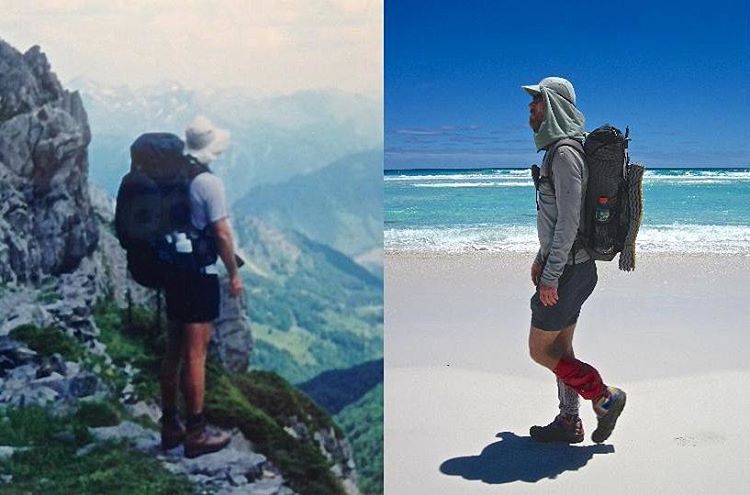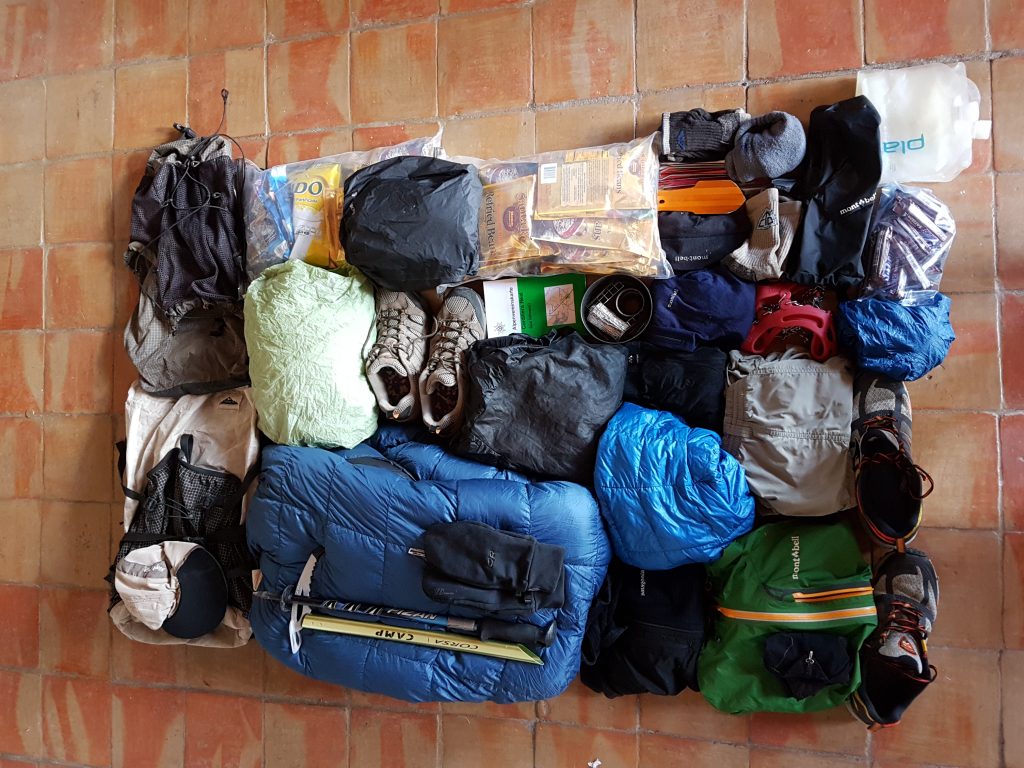I view backpacking equipment as a means to an end. And that end is to have the safest, most enjoyable experience I possibly can while out in the wilderness.
With that philosophy in mind, I look for five basic attributes in all of my outdoor gear:
- Simplicity
- Functionality
- Durability
- Lightweight
- Value
1. Simplicity
No matter whether I am in the backcountry or the city, I strive for simplicity. Life generally seems at its best when it’s kept simple. Isn’t that one of the reasons why many of us head out into the woods in the first place? Indeed, for millennia indigenous peoples around the globe, including the native inhabitants of Australia, the Americas and Sub-Saharan Africa, were all covering vast distances in the wilderness without the aid of fancy shelters, packs and footwear. They did so in an unencumbered lightweight fashion, which emphasised knowledge, necessity and simplicity, over superfluous luxuries.
In regards to modern-day backpacking equipment, simpler designs generally equate to fewer zippers, fewer compartments, fewer straps, less that can break, rip or go wrong (e.g. tarps, quilts, frameless and/or streamlined backpacks, alcohol stoves, compass rather than GPS, etc.).
2. Functionality
Always go for functionality over style. A piece of equipment may look fantastic in the store, but unless it performs as it is supposed to out in the field, it will be about as much use as a chocolate teapot. This is where all that research you did comes to the fore; scour the internet, read backpacking books, ask the advice of experienced hiker buddies, etc. You don’t want to discover that you have a porous rain jacket while caught in the Mother of all Storms.
“Where should I start my research?”
Earlier this year I updated a list of useful websites for hikers and backpackers. This compilation includes 25 different sites, many of which offer solid gear recommendations.
It’s also worth remembering that not all gear reviews are created equal. Personally speaking, if I’m interested in a piece of equipment, I’ll look for reports from experienced hikers that have used the said item extensively (i.e. months and years, rather than days or weeks). Always be wary of any review that starts with: “I just received X piece of gear in the mail, and after trying it out in my living room/backyard……” Similarly take with a grain of salt any article proclaiming that “these are the BEST backpacks/shelters /sleeping bags, etc.” How can they say that they are the best? Have they tried all of the options, in a wide range of conditions over months or years? Of course, they haven’t; more often than not it’s just clickbait.

The more I look at this photo, the less convinced I am about the veracity of the chocolate teapot analogy.
We all want gear that is going to last. Ask yourself whether the design and materials of the item you are thinking of buying are appropriate for the conditions in which you will be hiking (e.g. an inflatable sleeping mat may not be the best choice if 100% of your walking is done in rocky, desert-like terrain). Once you have taken the purchasing plunge, the key to making your gear last is doing the “little things” routinely. For example:
- Not regularly overloading your backpack.
- Making sure your tent is clean and dry before storing it.
- Not overly compressing your down sleeping bag for long periods of time.
4. Lightweight
Hiking is more enjoyable if your backpack doesn’t weigh the proverbial tonne. Innovative designs combined with increasingly lightweight, yet still durable materials, have meant that manufacturers can now produce incredibly lightweight equipment, without unduly sacrificing performance or safety (see Going Light).
“But, dude, I love my hiking boots / 4-season tent / 80 liter backpack. I’ve had them for years, and they have never let me down.”
I get it. Hikers are no different from anyone else – we are creatures of habit. Favourite pack, favourite shelter, favourite footwear, etc. And there is no denying that familiarity brings with it a certain sense of security. However, if I have to choose between familiarity and a drastically lighter pack weight (without compromising safety or performance), I will go with the latter every single time.
“Why?”
There are a number of reasons, but the big ones are quite simply comfort, health and enjoyment. It is better for both your body, which is less likely to incur stress related injuries, and also your mind, which is likely to be less distracted than it would be under the burden of a heavy load (Note: I am speaking from personal experience. I spent much of my early backpacking career in the 80’s and 90’s carrying heavy loads, before starting to seriously lighten my pack weight in the early 2000’s).

(L to R) Yours truly on the Pyrenees High Route, 1999 and the Cape to Cape Track (Western Australia), 2010.
5. Value
Discerning what constitutes value for money, basically comes down to a balance between the long term effectiveness of your purchase and what you paid for it. In regards to the latter, there are a handful of reputable sites on the internet that regularly offer sizeable discounts on all sorts of quality hiking gear. Listed in alphabetical order below are nine that I have personally used:
- Amazon
- Backcountry (Sale Page)
- Campsaver
- Moosejaw
- REI (Coupons & Rebates Page)
- Running Warehouse
- Sierra Trading Post
- 6pm
- Ultralight Outdoor Gear
Final Thoughts
These days the internet is full of forums, Youtube reviews and websites whose primary (if not sole) focus is backpacking gear. Some of these resources are good, others not so much. It is easy for people that are relatively new to hiking and backpacking, to get sucked into a gear rabbit hole looking for the latest, greatest and lightest.
I’m not suggesting that gear isn’t important. It definitely plays a fundamental role in keeping you comfortable and safe while out in the wilderness. But it isn’t the be all and end all. Having high end equipment is not a substitute for skills, fitness and experience. It is a complement to those things; nothing more, nothing less. In the words of veteran hiker, all around outdoorsy-type and good friend, Paul “Mags” Magnanti, “I use gear to hike, not hike to use gear.”
Disclosure: This post contains some affiliate links, which means ‘The Hiking Life’ receives a small commission if you purchase an item after clicking on one of the links. This comes at no additional cost to the reader, and helps to support the website in its continuing goal to create quality content for backpackers and hikers.


Great article, like how you explain simplicity and that we don’t need all the fancy stuff. That less is more. Overall great post. I’m in the backcountry hiking a lot and i’d rather have a lighter pack, also have started looking at hammocks over tents for longer adventures to keep my back lighter. Great philosophy !!!
Thanks for the kind words. A friend of mine by the name of Brian “Beardoh” Ristola has used a hammock on multiple long distance trails over the years. Here’s a link to an article he just wrote on the subject: https://www.longdistancehiker.com/hammocking-no-trees-all-terrain-setup/
No worries. Best of luck on your search!
As always, great advice. Sensible and sober.
Solid advice. Keeping things simple is something that can be difficult to do for the inexperienced, it’s one of these things that comes with experience and realizing you’ve been luggging around kit that you’ve never used and are never likely to use. Chances are you need less than you think 🙂